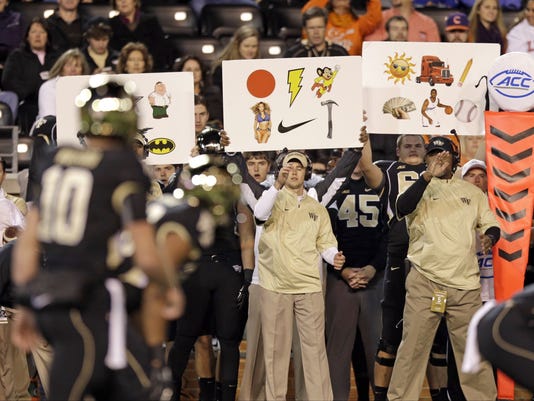

While I have never been an NFL Quarterback, I am a smart, intelligent person who has accomplished many things in my lifetime.
Yet I am also the person who has major depressive disorder and spent 43+ years doing everything in my power NOT to face it, NOT to acknowledge that I had it, NOT to deal with it.
My hospital stay has changed all of that.
Now my mantra is: “I have depression, depression does not have me.”
Describing my relationship with depression is what I have set out to do with my blog. Sharing my thoughts and experiences about my on-going recovery has helped me immeasurably. Writing has given me the chance to work out many unhelp thinking styles depression has been feeding me.
“Depression is not my boss.”
Saying that makes depression very angry. Depression wants to be in charge, it needs to be in charge. Depression loves to be the leader, but always from the rear or the sidelines. You do not see it in front of the band, in the Drum Majors outfit, bouncing around to the music and keeping everyone in line behind it.
No, depression acts like it is the coach for a major league football team.
Depression is at it’s best when it is sending in plays from the sidelines. It gives you the ball and lets you run with it. The plays it sends in are always designed to trip you up, but they don’t read that way. That’s because depression has spiked the water on the sidelines. It has planned everything but leads you to believe you are in charge.
You get to make the plays. When you win, you get to be the hero.
But most of the time with depression, you do not win. Well, speaking from my experience, I do not win. Or more importantly, by not facing depression and not acknowledging that I even have depression, it has been able to get me to do all sorts of things. When it wins, I lose in a big way.
And Coach Depression makes no excuse for its actions.
If I had only done a better job of following it’s directions, things would have turned out differently. I could have been rich, I could have traveled more, I “coulda been a contender.” Depression loves it when I “should on myself.” (Read my thoughts on Not Shoulding on Myself.)
Depression puts the blame squarely on my shoulders for my inability to make its plan work out. Afterall, I signed off on the play. It sent the play into the huddle with the best of intentions. All I had to do was execute it and I would have won. But after the ball was snapped, I was blind-sided by a rusher and sacked with for a loss of 12 yards on the play. What a crushing blow.
With Coach Depression yelling at me from the side lines, I had failed.
Knowing what I was supposed to do had not been enough. The rest of the team wasn’t on board. Each of them had been given other directions from Depression and their roles in the play had nothing to do with protecting me.
There roles were unclear to me, but because I have trusted in depression, I never even questioned what their roles should be. I assumed they would help me, not step aside and let the opposing team blind side me and tackle me.
So, the game is still going on.
I get to continue to quarterback the game, making the plays. My plan is to replace the plays sent in by Coach Depression with plays created after asking better questions about the plays generated by unhelpful thinking and my automatic thoughts..
That’s a mess, but it is what I have right now.
I get these plays called in from automatic thoughts, from unhelpful thinking. I must then run them through my personal enigma machine with today’s code, to translate them into the best actions.
If I don’t get the code right, I end up listening to the original message, which was written by depression. The outcome of doing this often leaves me teetering on the edge of the ledge, very close to slipping into the abyss.
So, with all my progress down the field, I have yet to score a goal.
That being said, I am moving the ball. I am not getting sacked as much, And I have achieved a few first downs. Making progress is a victory.
Who makes the calls for you?







Leave a Reply